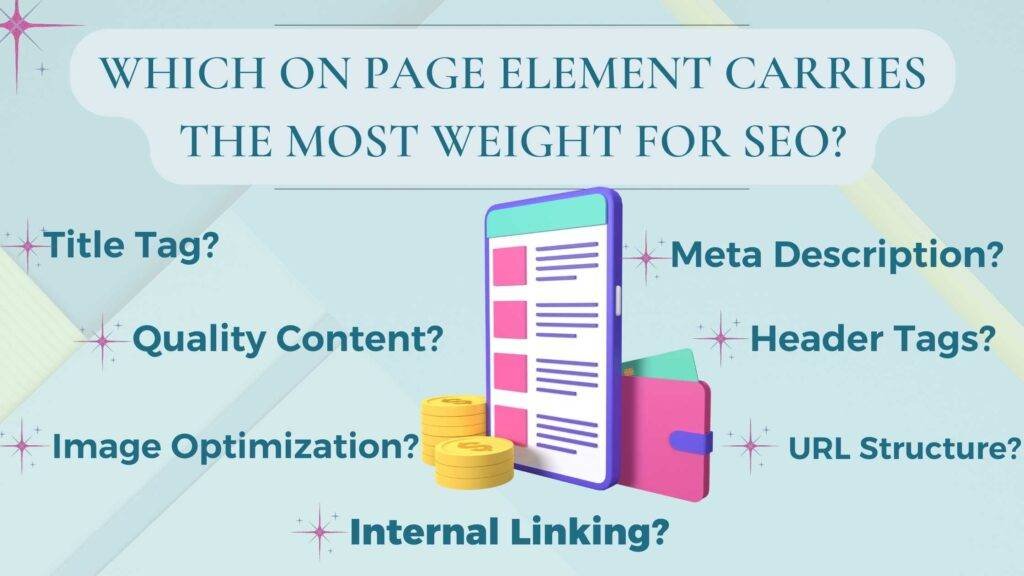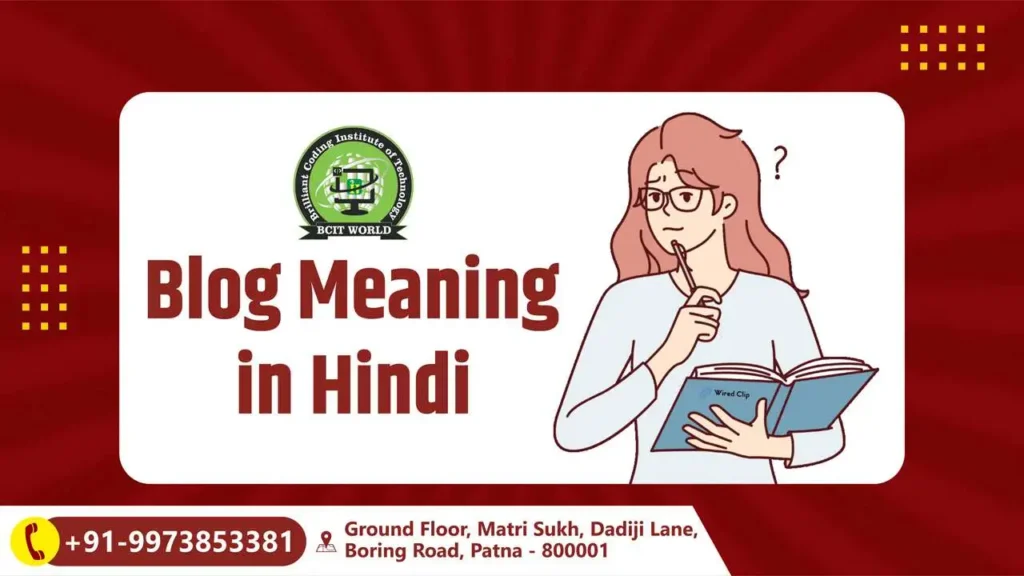Are you struggling with On-page SEO? Wondering which on-page element carries the most weight for SEO? Is it the title tags, meta descriptions, or something completely different?
If so, you’re not alone. Many SEO professionals, both beginners and experienced face these challenges.
In this article, you will get a clear-cut answer for the most important on-page element for SEO with valid reasons. You will also learn about other essential on-page factors that you should consider. So let’s dive straight into your question.
In this Article
Most important on-page element for SEO
Quality Content
Quality content is the most important on-page element for SEO. That popular saying, “Content is King,” has stood the test of time for good reason. Here I have gathered and shared some expert opinions that prove why content is the most important on-page element for SEO.
According to Moz, high-quality, relevant content is the foundation of any effective SEO strategy. Quality content helps attract links, which is a crucial ranking factor for search engines.
Neil Patel, a renowned digital marketing expert, believes that the quality of a website’s content reflects the quality of its brand. Quality content can establish a website as a thought leader in its industry, boosting its reputation and authority.
Jesse James Garrett, founder of Adaptive Path states that content is the cause people go online. People go online to search for information, and quality content can provide them with the answers they are looking for.
Lee Odden, CEO of TopRank Marketing, believes that content is the driving force behind why search engines exist in the first place. Without content, there would be nothing for search engines to index, and users wouldn’t have anything to search for.
Wendy Piersall, founder of eMoms at Home, believes that Google only loves websites that are popular and authoritative.This can be achieved by creating quality content that is shared and linked to other websites, signalling to search engines that a website is relevant and authoritative in its industry.
In conclusion, quality content is the most important on-page element for SEO. It can attract links, develop a business, and signal search engine authority. It can also boost organic traffic and audience trust. And finally, it converts visitors into consumers.
Only well-structured content can prove successful in the long run. Hence, investing time and effort into creating quality content as part of any SEO strategy is essential.
Title Tag – Important On-page element for SEO
Title Tags

Title tags are an essential on-page element for SEO and carry a significant weight in optimizing a website’s search engine ranking. They are the HTML elements that define the title of a webpage and appear in the search engine results pages (SERPs). Here are some reasons why title tags are so important for SEO:
First Impressions: Title tags are the first thing users see in the SERPs, making them vital to driving clicks and organic traffic.
Keyword Optimization: Title tags provide an opportunity to include target keywords. As a result, it helps to improve search engine visibility and rank better in search results.
Brand Recognition: Title tags can also establish brand recognition and create a consistent brand image across all web pages.
Clarity: A well-crafted title tag can provide clarity and accurately describe the content on the page, which can lead to a higher click-through rate and better user engagement.
Some other critical On-Page Elements for SEO
While content and title tags are critical on-page elements for SEO, several other important factors can significantly impact a website’s search engine ranking. Here are some of the most crucial on-page elements, aside from content and title tags, that carry the most weight for SEO:
Meta Descriptions

A meta description is a summary of the content on a web page that appears in the SERPs. It provides an opportunity to showcase the page and entice users to click through to the website. (include an image)
Header Tags:
Header tags (H1, H2, H3, etc.) are HTML tags that provide a hierarchical structure to the content on a web page. They help organize the content and make it easier for users and search engines to understand the page’s topic.
URL Structure:

A website’s URL structure can impact its search engine ranking. URLs that are short, descriptive, and contain target keywords can make it easier for search engines to understand the page’s content and rank it accordingly.
Image Optimization:
Images can enhance a website’s content and user experience and slow page loading times. Optimizing images by compressing them and adding alt tags can improve website performance and search engine visibility.
Internal Linking:
Internal linking refers to links within your content that point to other web pages on your website. It helps to establish a website’s structure and hierarchy, distribute link equity and improve user navigation.
By paying attention to these on-page elements and optimizing them, you can improve your website’s search engine visibility, attract more traffic, and achieve better long-term growth.
Why the title tag is not the most important On-page element for SEO
Individuals who value the title tag more than the content must know that only a proficient content writer can create an exceptional title.
If not, a title without good content is like a shell without a pearl, generating disappointment and escalating the bounce rate. It also creates a negative impression on search engine crawlers and the audience, ultimately damaging your website rather than benefiting it.
Takeaways
When it comes to the most important on-page element for SEO, the answer is clear – writing good, unique content is vital. However, it’s essential to remember that this is just the beginning. To make an impact and improve your website’s search engine ranking, you must implement several other on-page elements (suggested above) to help search engine crawlers, and your target audience finds your content more quickly.
But start with quality in your content. Even producing high-quality, relevant content is the most significant way to start to step into digital marketing. As the famous quote goes, “Content is king.” By consistently creating unique and valuable content, you’ll be setting yourself up for success in the long run. So don’t be afraid to get started, and remember that every incredible journey begins with a single step.




